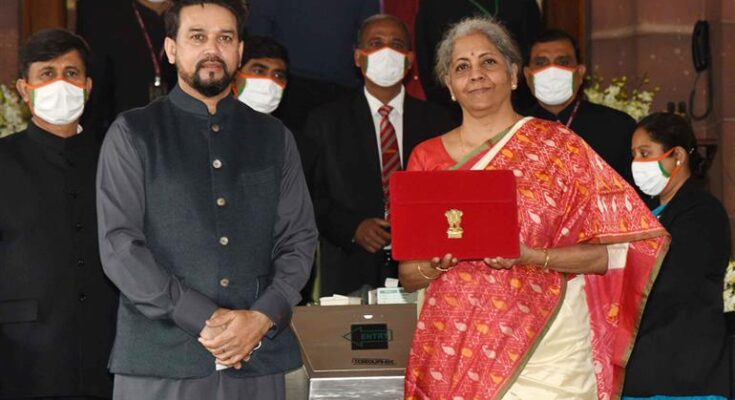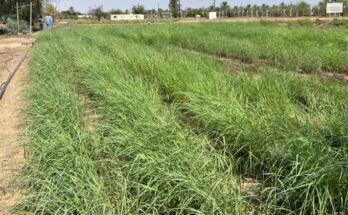Presenting her third Budget today in Parliament, Indian Finance Minister Nirmala Sitharaman said that the government is committed to the welfare of farmers. But in terms of resource allocations and policy support, Union Budget 2021-22, being touted by the government as ‘the ‘most important Budget in decades,’ does look very promising. Even experts and stakeholders of the sector have given a mixed reaction to the budgetary provisions made for the agriculture sector. Agricultural Research, rationalisation of GST rates on agrochemicals, urgent requirements of inputs segment .remained neglected this year as well. It would be early to see the imposition of a new cess for the Agriculture Infrastructure Fund (AIF) as a positive move.

“The budget announcement for the agriculture sector maintained the reform momentum but lacked coverage of wider issues. Some announcements such as the extension of farm credit provision to farmers, commodity expansion to operation green, and extension of AIF to APMC did hit the target and will boost the Agri supply chain for perishables and non-perishable commodities. New initiatives like Multi state cooperatives can also help strengthen a one India – one market concept,” says Ajay Kakra, Leader – Food and Agriculture, PwC India.
Agriculture infrastructure fund will be available for APMCs for augmenting their infrastructure, the Finance Minister said. One of the main arguments against the new farm laws is these laws will put an end to APMCs. The government’s intentions are very unclear as 1,000 more APMC mandis are proposed to be integrated into the e-NAM marketplace.

For inputs, Union Budget does not look progressive. Overall, it is a status quo budget for agriculture in general and for seed industry in particular, said Ram Kaundinya, Director General, Federation of Seed Industry of India (FSII). “Agriculture contributed significantly to our successful fight against COVID-19. But, the sector did not get the needed attention in the budget. No transformative measures have been proposed,” he added.

“We do not have much for the agrochemical sector. The only upside is that the proposed increase of agriculture credit is likely to increase the purchasing power of the farmers, which will, in turn, become a factor of growth for the agrochemical sector. The MSMEs may benefit from the increase in customs duty and withdrawal of exemption on certain imports. But largely, this budget does not have much for us”, said Pradip Dave, President, Pesticides Manufacturers & Formulators Association of India (PMFAI).
PMFAI suggested an increase in customs duty on import 10 to 30 percent on import of ready-made pesticides formulation government has failed to protect and support Indian Pesticides industries. PMFAI appeal to reduce GST to 5 percent from 18 percent to help farmers also ignored, he further added.
However, experts hailed an increase in agricultural credit target to Rs. 16.54 lakh crore. The move will help farmers in accessing more credit.
“Investments in research in agriculture are not addressed, especially, since research and innovation is one of the 6 pillars of Aatma Nirbhar Bharat and there is a need to scale up private sector investments in agricultural research. There is an urgent need to step up investments in research into Agri biotechnology, seed technology, and modern technologies for farmers. Seed industry was expecting the restoration of 200 percent tax deduction of research expenses but it has not been met,” said Kaundinya.
The industry expected a major project to invest in scaling up domestic oilseeds production through incentives for farmers, use of modern technologies in crops like mustard, soybean, and groundnut, etc would be announced with an eye on reducing huge imports of edible oils. No such project was announced.

On the Agritech front, the government’s emphasis on innovations is expected to push start-ups. Nikhil Das, Founder, Agdhi said, “The budget has realised the importance of start-ups in job creation and has extended the tax holiday for start-ups till March 2022. Already withering under the impact of the pandemic, the announcement has come as a big relief for start-ups that have become a critical employment generator with 4,70,000 jobs. Such measures are likely to boost sentiments across the board among potential entrepreneurs who are keen on entering the market with their business ideas.”
Union Budget 2021 has shown confidence in the Minimum Support Price (MSP) regime and has upheld it for the farmers. The budget has promised 1.5 times MSP against the cost of production across all commodities. According to Das, this is likely to bring in more innovation and adoption of technology in farming. “Overall, the budget has decided on supporting sectors that generate employment and seeks to revive an economy that has been severely hit by a global pandemic,” he added.

Apex industry body Assocham welcomed the measures for the sector and appreciated the government’s focus on building agri infrastructure. “However, the government could consider replacement of proposed cess with raising more through disinvestment, the target for which may be raised in the wake of a healthy capital market,” said Vineet Agarwal, President, Assocham.

The increase in the Agricultural Credit target to Rs 16.5 lakh crore and the changes in the MSP (Minimum Support Price) regime to assure prices that are at least 1.5 times the cost of production across all commodities; will continue to boost the contribution of agriculture to the Indian economy,” said Asitava Sen, Chief Executive Officer, CropLife India.
To reduce overall cost of production for farmers, the GST on agrochemicals could have been reduced from the current 18 percent to 12 percent. Further, the government should provide a 200 percent weighted deduction on R&D expenses by agrochemical companies to encourage innovation and introduction of new technologies, Sen further said.

The Union Budget highlights the Government’s continued focus to modernise the Agriculture sector. However, budgetary provisions for various schemes and projects do not appear adequate. The government has made an additional allocation of Rs. 5,000 crore to the Micro Irrigation Fund (MIF) under NABARD which now totals Rs. 10,000 crore. Randhir Chauhan, Managing Director, Netafim India and Senior Vice President, Netafim Ltd said, “This is in line with the Government’s vision of ‘per drop more crop’, and will help move closer to the target of micro-irrigation coverage across one crore hectare in five years, across the country.”
“To improve the fund utilisation, we request policy-makers to remove the condition of disbursement and consider making it available for the mandatory state share as well. The additional fund could keep the momentum up in states like Tamil Nadu, Maharashtra, Gujarat, and Karnataka which are already in favour of the scheme, help restart in states like Andhra Pradesh and Telangana and bring newer states like Uttar Pradesh, Bihar and Jharkhand under its gamut,” Chauhan said.

Amit Saraogi, Managing Director, Anmol Feeds observed that for seamless supply chain and logistics, the focus on rail and road infrastructure especially, freight corridors will enhance competitiveness of Indian agriculture sector by lowering the cost of transportation and better connectivity between production and consumption markets, not just domestic but also globally.
“Overall the budget leaves room for optimism but left the poultry sector in a lurch,” he added.
During the pandemic, the agriculture sector remained vibrant and inculcated a deeper sense of dependency. Agriculture is the backbone of the Atma Nirbhar Bharat. However, the measures announced today remain short of expectations for pushing research, innovations, efficiency, creation of a new ecosystem, and sustainable growth of the agriculture sector.
 Agriculture Post is now on Telegram. Click here to join our channel and stay updated with the latest news and updates on agriculture.
Agriculture Post is now on Telegram. Click here to join our channel and stay updated with the latest news and updates on agriculture.





